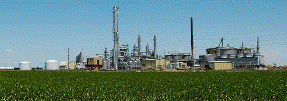Agricultural and Biological Systems Engineering, Department of

Adam Liska Papers
Document Type
Article
Date of this Version
8-2020
Citation
Catastrophe & Climate Strategic Research Program Newsletter – August 2020, pp 10-19.
Abstract
Climatic events have accounted for 91% of $1.05 trillion in insured costs for global catastrophic events from 1980 to 2016. Costs are driven by socio-economic development and increased frequency and severity of climatic disasters driven by climate change. Government policies to reduce systemic risk (e.g., cap-and-trade, carbon tax) have been a predominant approach for mitigation and adaptation. Alternatively, market-based incentives for climate change adaptation and mitigation already operate via the insurance industry to lessen impacts on society. Insurance feedbacks include changes in 1) premiums and insurance policies, 2) non-coverage, and 3) policy making and litigation. Alongside government policies, insurance feedbacks could be used to facilitate climate change adaptation and mitigation to a significant degree. Ultimately, a negotiated distribution of climate-related costs between the public and private insurance is needed.
Included in
Atmospheric Sciences Commons, Bioresource and Agricultural Engineering Commons, Climate Commons, Environmental Indicators and Impact Assessment Commons, Natural Resources Management and Policy Commons, Other Civil and Environmental Engineering Commons, Other Earth Sciences Commons, Other Environmental Sciences Commons


Comments
Copyright © 2020 by the Society of Actuaries. Used by permission.